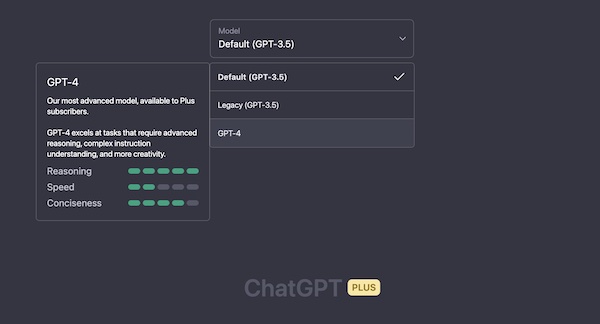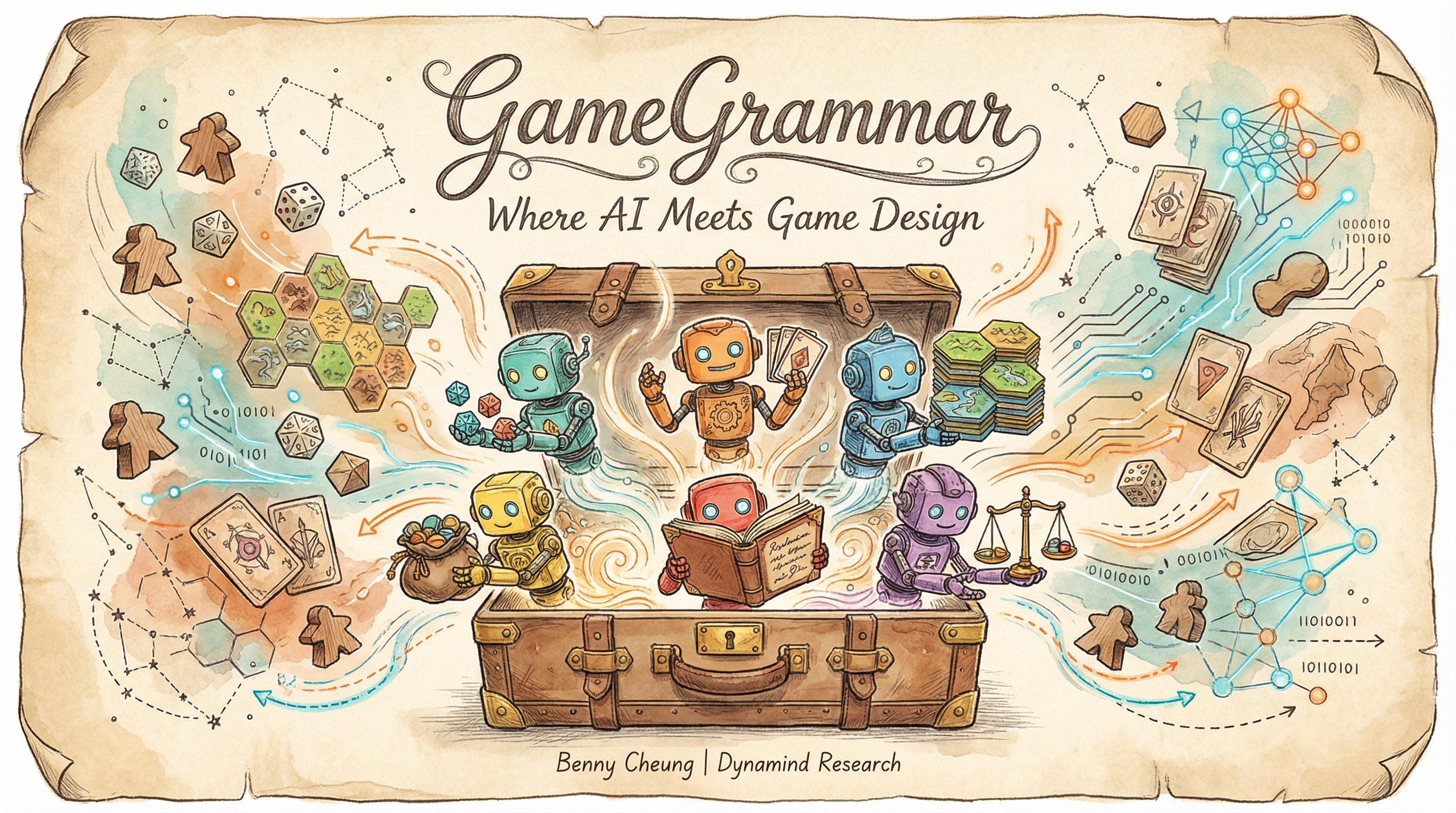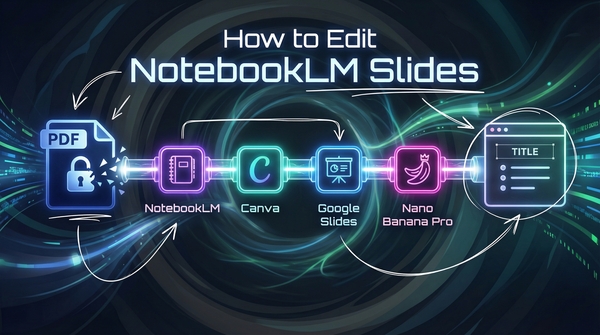artwork by Stable Diffusion AI
Enhancing Biblical Study with ChatGPT
The study of the Bible is an enriching and transformative journey, offering profound insights into our faith, personal growth, and understanding of the world. While traditional methods of biblical study, such as personal reading, attending classes, and consulting commentaries, remain essential, modern technology has opened up new possibilities for engaging with the sacred text. One such tool is ChatGPT, a powerful AI language model developed by OpenAI, capable of providing valuable assistance and insights for biblical studies.
[2024/10/05] We can listen to this article as a Podcast Discussion, which is generated by Google’s Experimental NotebookLM. The AI hosts are both funny and insightful.
images/enhancing-biblical-study-with-chatgpt/Podcast_ChatGPT_Biblical_Study.mp3

In this article, we explore the various ways in which ChatGPT can enhance your biblical study experience, covering topics such as understanding context, translation comparisons, word studies, cross-references, interpretation assistance, theological concepts, biblical themes, historical background, exegesis, hermeneutics, commentaries, and practical application. While ChatGPT is not a replacement for traditional study methods or the guidance of trained theologians, it can serve as a helpful supplementary resource, providing immediate access to a wealth of information and insights.
Join us as we delve into the potential of ChatGPT as a tool for biblical study, and discover how this powerful AI language model can support your journey towards a deeper understanding of the Bible, enriching your faith and spiritual growth.
All examples in this article are tested and generated by the latest OpenAI GPT-4, which is available via ChatGPT Plus Subscription. GPT-4 is not a requirement to utilize ChatGPT effectiveness in Biblical Study, regular ChatGPT is able to generate equally effective (but shorter) response.
The full answers are not included in this article due to the length. If reader is interested to read how ChatGPT answers to the example questions, please leave a comment and we shall response to you.

Figure. Illustrated selecting the GPT-4 used by ChatGPT.
Understand How to Interact with AI
We start with the understanding of how to interact with AI effectively. By learning how to communicate your needs and inquiries clearly, you can get the most out of your AI-assisted biblical study experience. We will explore tips and strategies for asking questions, providing context, and engaging in meaningful conversations with AI to enhance your understanding of biblical concepts and teachings.
AI language models like ChatGPT act as mirrors in many ways, reflecting the user’s interests and knowledge on a given topic. Let’s explore these aspects in more detail:
-
Your interest/preference: When engaging with an AI language model, it responds to your specific questions and inquiries, tailoring its responses based on the subjects and themes you express interest in. By doing so, it helps cater to your personal preferences, providing you with information and insights that are most relevant to you.
-
Your knowledge of the topic: AI language models can adapt their responses to the level of knowledge or expertise you display. By analyzing the questions and vocabulary you use, ChatGPT can provide more general or detailed responses, depending on your current understanding of the subject. This adaptability makes AI language models useful tools for users with varying levels of expertise in a particular area, such as biblical studies or any other field of interest.
Context, Context, Context
AI generates an answer based on context for a given question. While traditional search engines like Google provide links to sources that might contain the information you’re seeking, AI language models aim to generate a personalized and summarized response based on the context provided in your question.

The context provided by the user plays a crucial role in determining the accuracy and relevance of the AI-generated response. Without sufficient context or clarification, ChatGPT might misinterpret the question and provide an answer that doesn’t align with the user’s intended meaning.
For examples,
- If the user’s question is related to mathematics and includes terms like “sin,” “cosine,” or other mathematical concepts, ChatGPT will recognize the context and generate an answer related to trigonometry.
- If the user’s question is related to Christianity and the term “sin” is used in a religious context, ChatGPT will generate an answer related to the biblical understanding of sin.
Unless the user clarifies context, we can see that AI may misinterpret the question.
Begin with Clear Context
Starting your inquiry with a clear context is a powerful approach to ensure an AI language model understands your intent. By specifying a book or resource in your question, you can provide immediate context that helps generate more accurate and relevant responses.
Consider these examples:
- “Provide an overview of Mere Christianity by C.S. Lewis.”
- “What is the main message of the Gospel Primer by Milton Vincent?”
- “In The Praying Life by Paul E. Miller, why is prayer considered vital?”
- “Summarize the key points of Biblical Preaching by Haddon Robinson concisely.”
Importance of Providing Clear Context
When a question lacks sufficient context, AI language models may struggle to determine the user’s intent, leading to less accurate and relevant responses. To obtain the most valuable and useful information, users should provide clear context and clarify their questions when interacting with AI.
When given a well-defined context, AI has ample information to work with. For instance:
- The user is interested in Christianity and personal spiritual growth, seeking theological education through books.
- The AI can then consider the author, doctrine, background, and related resources to generate precise answers.
Such context enables AI to provide more accurate responses.
However, if a user only shares this:
- “I’m a Christian who believes in the Bible.”
The AI can only deduce:
- The user is a Christian.
- The user is familiar with the Bible.
As a result, the AI may provide more general or vague answers. Providing clear context is essential for receiving more focused and relevant information from AI language models.
Engaging in Conversations for Accurate Information
Your interactions with AI will differ depending on your specific needs and interests. When seeking answers related to Christian learning, it’s essential to mention the Bible to ensure the AI provides relevant verse suggestions. Remember to verify the context of the provided verses to ensure the information aligns with your inquiry.
The following are examples of questions designed to elicit precise answers from the AI:
- Scriptural
- “Please explain James 4:1-4 in simple terms appropriate for a 12-year-old.”
- “Can you analyze a psalm that uses a chiastic literary structure and explain its significance?”
- “What distinguishes the four Gospels in terms of their perspective and content?”
- Personal
- “I’m worried about the future. Are there any Bible verses that can provide comfort and guidance?”
- “I’m experiencing burnout in ministry. Can you suggest some verses that address this issue?”
- “Sometimes I feel unworthy. What does the Bible say about God’s love for us despite our shortcomings?”
- Details of Application
- “Can you provide some contemporary examples of idolatry that Christians should be aware of?”
- “What are some ways Christians can participate in local missions in Toronto?”
- “With so many spiritual gifts mentioned in the Bible, how can I determine which one I possess?”
- Recommendations
- “Can you suggest an online commentary that would help me better understand the Book of Exodus?”
- “Please recommend some biblically grounded books that can deepen my understanding of Christianity.”
- “Could you recommend some pastors known for their biblically sound doctrine and briefly describe their teachings?”
- Apologetics (Defence of faith)
- “How can God be loving if He hates sin and wickedness as described in the Bible?”
- “Why do Christians in the Bible experience suffering and sacrifice if God is good?”
- “Given that all Christians believe in the same Bible, what factors contribute to the existence of so many denominations?”
- Debate/conversation in different roles and circumstances
- Example: “Assume the role of a non-Christian who has questions about Christianity. Engage in a respectful dialogue with me, asking questions and raising concerns about the Christian faith. This will allow me to practice my apologetics skills and better understand different perspectives.”
Ways to use ChatGPT for Biblical Study
Once you comprehend how AI interacts, ChatGPT can be a helpful tool for biblical study in a variety of ways. Here are some suggestions:
| Biblical Study | Description | Example of ChatGPT Question |
|---|---|---|
| Understanding context | Provide historical and cultural context for passages. | What is the cultural context of the parable of the Good Samaritan in Luke 10:25-37? |
| Translation comparisons | Compare different translations of the Bible and get explanations for discrepancies or variations in wording. | What are the differences between the King James Version and the New International Version of John 3:16? |
| Word studies | Perform in-depth word studies by asking about the meaning of specific words, their etymology, and the original languages. | What is the meaning of the Greek word ‘agape’ and how is it used in the New Testament? |
| Cross-references | Ask for cross-references to other biblical passages that are related to a specific verse or theme. | What other passages in the Bible discuss the concept of faith? |
| Interpretation assistance | Seek help in understanding difficult passages, parables, or symbolism within the text. | What is the meaning of the ‘parable of the sower’ in Matthew 13:1-23? |
| Theological concepts | Clarify and discuss theological concepts, like salvation, grace, or the nature of God. | What is the doctrine of the Trinity and how is it supported in the Bible? |
| Biblical themes | Explore common themes, motifs, or narratives throughout the Bible. | What are some examples of covenant relationships in the Bible? |
| Historical background | Learn about the historical figures, events, and cultures mentioned in the Bible. | Who was King Nebuchadnezzar and what was his role in the Book of Daniel? |
| Exegesis and hermeneutics | Develop a better understanding of exegetical and hermeneutical methods used in biblical interpretation. | What is the difference between exegesis and hermeneutics in biblical interpretation? |
| Commentaries and resources | Get recommendations for scholarly commentaries, articles, or books that can provide further insight into the biblical text. | What are some recommended commentaries on the Book of Romans? |
| Application | Discuss how biblical principles can be applied to modern-day life and personal growth. | How can the principle of forgiveness in the Lord’s Prayer (Matthew 6:12) be applied in daily life? |
WARNING: Remember that while ChatGPT can be a helpful resource, it’s important to consult a variety of sources and experts to ensure a well-rounded understanding of the Bible. Additionally, bear in mind that ChatGPT may not always provide accurate information and may not align with specific theological perspectives.
1. Understanding Context

Understanding context is crucial for accurate interpretation of biblical passages. By using ChatGPT, you can gain insights into the historical, cultural, and linguistic context of a passage, which can help you better grasp the intended meaning of the text. Here’s a more detailed explanation of how ChatGPT can assist with understanding context:
| Context Type | Description | Role in Biblical Study |
|---|---|---|
| Historical Context | Understanding the historical background of a passage, including the time period, political climate, and significant events during which the text was written, is important for interpretation. | Provides information on the relevant historical context, enhancing comprehension of the passage and motivations of biblical authors. |
| Cultural Context | Knowing the cultural norms, customs, and social structures of societies described in the Bible can shed light on the intended meaning of a text. | Helps explore the values, beliefs, and practices of ancient civilizations, clarifying the significance of various actions or statements. |
| Linguistic Context | The nuances of the original languages (Hebrew, Aramaic, and Greek) can impact the translation and interpretation of the Bible. Gaining insights into linguistic context can help avoid misinterpretations due to translation differences. | Assists with understanding the original languages, explaining word meanings, and examining idiomatic expressions for better interpretation. |
Example
We are doing biblical study on "Understanding Context". What is the cultural context of the parable of the Good Samaritan in Luke 10:25-37?
Summary: ChatGPT could provide information on the historical relationship between Jews and Samaritans and how that might impact the meaning of the story.
2. Translation Comparisons

Translation comparisons are essential for understanding the nuances and subtleties of the original biblical languages as they are rendered into English or other modern languages. By using ChatGPT for translation comparisons, you can explore differences between various translations, understand the reasons behind certain translation choices, and gain a more accurate understanding of the original text. Here’s a more detailed explanation of how ChatGPT can assist with translation comparisons:
| Topic | Description | Role in Biblical Study |
|---|---|---|
| Compare Translations | There are numerous English translations of the Bible, each with its unique approach and style. Some prioritize literal translation, while others focus on capturing the meaning in contemporary language. | Helps compare translations, highlighting similarities and differences in word choice, sentence structure, and overall emphasis, leading to a more well-rounded understanding of the biblical text. |
| Understand Translation Choices | Different translations may adopt distinct approaches based on factors such as the intended audience, the translation philosophy, and the manuscripts used. | Provides insights into the rationale behind specific translation choices and their impact on the interpretation of a passage, aiding in informed decisions about which translation(s) to use for study and personal growth. |
| Identify Translation Challenges | Some biblical passages present unique translation challenges due to factors such as textual variants, linguistic ambiguities, or cultural idioms. | Helps recognize translation challenges and explores how various translations have addressed them, contributing to a more nuanced and informed interpretation of the text. |
| Examine Textual Variants | The Bible has been preserved through a multitude of manuscripts, and some textual variants exist among them. | Assists in identifying and comparing textual variants and their implications for translation and interpretation, deepening understanding of the textual history of the Bible and enabling better comprehension of certain translation choices. |
Example
We are doing biblical study on "Translation comparisons". What are the differences between the King James Version and the New International Version of John 3:16?
Summary: ChatGPT can compare the translations and explain any differences in wording or emphasis.
3. Word Studies

Word studies involve examining the meanings, etymology, and usage of individual words in their original biblical languages (Hebrew, Aramaic, and Greek). By using ChatGPT for word studies, you can gain a deeper understanding of the biblical text and appreciate the subtleties and nuances of the original languages. Here’s a more detailed explanation of how ChatGPT can assist with word studies:
| Topic | Description | Role in Biblical Study |
|---|---|---|
| Meaning and Etymology | Understanding the meanings of words in their original languages, as well as their roots and origins, can provide valuable insights into the intended message of a passage. | Helps explore the meanings and etymology of specific words, revealing layers of meaning that may not be fully captured in translation, leading to a richer understanding of the text and deeper appreciation of the author’s intent. |
| Usage in Context | Words can take on different meanings depending on their context. By using ChatGPT, you can examine how a word is used in various biblical passages and understand the range of meanings it can convey. | Assists in grasping the nuances of a particular word and better understanding its role within a given passage or theme by examining its usage in various biblical passages. |
| Word Families and Cognates | Words often belong to families or groups that share a common root or origin, which can influence their meanings and usage. ChatGPT can help you explore word families and cognates in the original languages, providing insights into the relationships between words and their broader linguistic context. | Enhances understanding of the text and the subtle connections between different passages by exploring word families and cognates in the original languages, providing insights into the relationships between words and their broader linguistic context. |
| Semantic Range | Words in the original biblical languages can have a wide range of meanings or connotations. ChatGPT can assist you in exploring the semantic range of a particular word, helping you understand the various nuances it can convey. | Contributes to discerning the most accurate or appropriate translation of a word in a given context by exploring the semantic range of a particular word, helping to understand the various nuances it can convey. |
Example
We are doing biblical study on "Word studies". What is the meaning of the Greek word 'agape' and how is it used in the New Testament?"
Summary: ChatGPT would provide a definition of the word and examples of its usage in various biblical passages.
4. Cross-References

Cross-references involve identifying and comparing related biblical passages to gain a deeper understanding of a theme, concept, or narrative. By using ChatGPT for cross-references, you can efficiently find connections between passages, uncover recurring themes, and better comprehend the broader context of the Bible. Here’s a more detailed explanation of how ChatGPT can assist with cross-references:
| Topic | Description | Role in Biblical Study |
|---|---|---|
| Identify Related Passages | When studying a specific verse or theme, it’s helpful to explore other parts of the Bible that address similar topics. | Provides a list of related passages, allowing the study of the broader biblical context and gaining a more comprehensive understanding of the topic at hand. |
| Uncover Recurring Themes | The Bible contains numerous recurring themes and motifs that are developed and explored across various books and authors. | Identifies recurring themes and provides relevant passages to study, deepening the understanding of the connections between different parts of the Bible. |
| Clarify Meaning through Parallel Passages | Some biblical passages can be better understood by examining parallel passages that describe the same event or concept. | Identifies parallel passages, enabling comparison and contrast of their details, which helps clarify the meaning and significance of each text. |
| Examine Scriptural Harmony | The Bible is composed of many books written by different authors over a long period. | Finds cross-references to explore the harmony and coherence of the biblical message, gaining insights into the unity of the biblical narrative and its central themes. |
| Understand the Development of Ideas | Ideas and concepts in the Bible often develop and evolve throughout the text. | Provides cross-references to relevant passages, allowing the tracing of the development of ideas and a better understanding of the progression of thought and its implications for interpretation. |
Example
We are doing biblical study on "Cross-references". "What other passages in the Bible discuss the concept of faith?"
Summary: ChatGPT can provide a list of related verses from both the Old and New Testaments.
5. Interpretation Assistance

Interpretation assistance involves seeking help in understanding difficult passages, parables, or symbolism within the biblical text. By using ChatGPT for interpretation assistance, you can gain insights into the meaning of complex or ambiguous texts, explore various interpretive perspectives, and enhance your overall understanding of the Bible. Here’s a more detailed explanation of how ChatGPT can assist with interpretation assistance:
| Topic | Description | Role in Biblical Study |
|---|---|---|
| Clarify Difficult Passages | Some biblical passages can be challenging to understand due to factors such as cultural differences, linguistic nuances, or complex theological concepts. | Provides explanations, background information, and relevant context to help unpack difficult passages, leading to a clearer understanding of the text. |
| Explore Parables and Symbolism | The Bible contains many parables, allegories, and symbolic language that can be challenging to interpret. | Helps understand the intended message or moral behind these stories, as well as the cultural or historical significance of the symbols used, leading to a deeper appreciation of the richness and depth of the biblical text. |
| Examine Interpretive Perspectives | Biblical passages can often be understood and interpreted in multiple ways. | Provides different interpretive perspectives, allowing consideration of various viewpoints and weighing the evidence for each approach, helping to develop a more well-rounded and informed understanding of the passage in question. |
| Understand Literary Devices | The Bible employs various literary devices, such as metaphor, simile, hyperbole, and irony, which can impact the interpretation of a text. | Assists in identifying and understanding these devices, enabling appreciation of the subtleties of the biblical language and better grasp of the intended meaning of a passage. |
| Provide Guidance on Genre | The Bible contains various literary genres, including historical narrative, poetry, prophecy, wisdom literature, and epistles. Each genre has its unique features and interpretive challenges. | Helps understand the characteristics of each genre and provides guidance on how to approach interpretation within that genre, resulting in a more accurate and nuanced understanding of the text. |
Example
We are doing biblical study on "Interpretation assistance". What is the meaning of the 'parable of the sower' in Matthew 13:1-23?
Summary: ChatGPT can help explain the symbolism and message of the parable.
6. Theological Concepts

Theological concepts involve the study of key doctrines, beliefs, and principles that underpin the biblical narrative and Christian faith. By using ChatGPT for exploring theological concepts, you can deepen your understanding of these ideas, examine their biblical basis, and engage in thoughtful reflection and analysis. Here’s a more detailed explanation of how ChatGPT can assist with theological concepts:
| Topic | Description | Role in Biblical Study |
|---|---|---|
| Define and Explain Concepts | Theological concepts can sometimes be complex or abstract, making them challenging to understand. | Defines and explains ideas in an accessible and clear manner, providing a solid foundation for further study and reflection. |
| Explore Biblical Basis | To understand the origins and development of theological concepts, it’s essential to examine their biblical basis. | Identifies and analyzes relevant passages that support or illustrate a particular doctrine or belief, deepening the understanding of the concept’s roots in the biblical text. |
| Compare and Contrast Different Perspectives | Theological concepts can be subject to various interpretations and viewpoints. | Provides an overview of different perspectives, allowing comparison and contrast of their strengths and weaknesses, helping develop a well-rounded and informed understanding of the concept in question. |
| Examine Historical Development | Theological concepts often have a rich history of development and debate within the Christian tradition. | Explores this history, providing insights into the evolution of ideas, key thinkers and theologians, and significant historical events that have shaped theological understanding. |
| Engage in Critical Analysis | Developing a deep understanding of theological concepts requires thoughtful reflection and critical analysis. | Poses questions, presents arguments and counterarguments, and offers insights that encourage critical thinking about the concepts being studied. |
| Apply Concepts to Real-life Situations | Theological concepts can be more fully understood and appreciated when applied to real-life situations and experiences. | Explores practical applications of theological ideas, offering insights into how these concepts can inform daily life, relationships, and spiritual growth. |
Example
We are doing biblical study on "Theological concepts". What is the doctrine of the Trinity and how is it supported in the Bible?
Summary: ChatGPT can offer an explanation of the concept and provide relevant biblical passages.
7. Biblical Themes

Biblical themes are overarching ideas, motifs, or messages that run throughout the Bible, providing unity and coherence to its diverse content. By using ChatGPT to explore biblical themes, you can gain a deeper understanding of these central ideas, trace their development across the biblical narrative, and apply them to your personal faith journey. Here’s a more detailed explanation of how ChatGPT can assist with biblical themes:
| Topic | Description | Role in Biblical Study |
|---|---|---|
| Identify and Define Themes | ChatGPT can help you identify key biblical themes and provide clear definitions and explanations of their significance. This foundational understanding can serve as a starting point for further exploration and reflection on the theme’s relevance and implications for your own life. | Provides foundational understanding of key themes and their significance, serving as a starting point for further exploration and reflection. |
| Trace Themes Across the Biblical Narrative | Biblical themes often develop and evolve throughout the text. ChatGPT can assist you in tracing these themes across different books, authors, and time periods, revealing the richness and depth of the biblical message and providing insights into the progression and development of these central ideas. | Assists in tracing themes across different books, authors, and time periods, revealing the richness and depth of the biblical message and providing insights into the progression and development of central ideas. |
| Examine the Interplay of Themes | The Bible often explores the interplay and connections between different themes, creating a complex and nuanced tapestry of ideas. ChatGPT can help you understand these connections and relationships, offering insights into how various themes inform and influence one another within the biblical narrative. | Helps understand connections and relationships between themes, offering insights into how various themes inform and influence one another within the biblical narrative. |
| Analyze Themes within their Historical and Cultural Context | Understanding the historical and cultural context in which biblical themes are presented can greatly enhance your comprehension and appreciation of these ideas. ChatGPT can provide background information on the relevant historical periods, cultural norms, and societal structures, allowing you to better grasp the significance and impact of these themes within their original context. | Provides background information on relevant historical periods, cultural norms, and societal structures, allowing better grasp of the significance and impact of themes within their original context. |
| Explore Theological Implications | Biblical themes often have significant theological implications, shaping and informing key doctrines and beliefs within the Christian faith. ChatGPT can help you explore these implications, deepening your understanding of the theological foundations underpinning these central ideas. | Helps explore theological implications of biblical themes, deepening understanding of the theological foundations underpinning central ideas. |
| Apply Themes to Personal Faith and Life | Ultimately, understanding biblical themes can have a profound impact on your personal faith journey and daily life. ChatGPT can assist you in applying these themes to your own experiences, offering insights into how these central ideas can inform your spiritual growth, relationships, and approach to living out your faith. | Assists in applying biblical themes to personal experiences, offering insights into how central ideas can inform spiritual growth, relationships, and approach to living out faith. |
Example
We are doing biblical study on "Biblical themes". What are some examples of covenant relationships in the Bible?"
Summary: ChatGPT can provide examples of various covenants, such as the ones made with Noah, Abraham, and Moses.
8. Historical Background

Historical background involves understanding the historical, cultural, and social context in which the biblical texts were written. By using ChatGPT to explore historical background, you can gain valuable insights into the world of the biblical authors, enhance your understanding of the text, and more accurately interpret the meaning and significance of specific passages. Here’s a more detailed explanation of how ChatGPT can assist with historical background:
| Topic | Description | Role in Biblical Study |
|---|---|---|
| Provide Historical Context | ChatGPT can provide you with an overview of relevant historical context, helping you situate the biblical narrative within its original setting and appreciate the factors that influenced its development. | Provides an overview of relevant historical context, helping situate the biblical narrative within its original setting and appreciate factors that influenced its development. |
| Explain Cultural Customs and Practices | ChatGPT can help you understand cultural customs and practices, explaining their significance and the role they played in the lives of the biblical characters. This can lead to a deeper appreciation of the text and its meaning for the original audience. | Helps understand cultural customs and practices, explaining their significance and the role they played in the lives of biblical characters, leading to a deeper appreciation of the text and its meaning for the original audience. |
| Illuminate Historical Geography | ChatGPT can help you understand the importance of specific locations, such as cities, regions, or landmarks, and the role they played in the biblical narrative. This can enhance your understanding of the text and its connection to the real world. | Helps understand the importance of specific locations and the role they played in the biblical narrative, enhancing understanding of the text and its connection to the real world. |
| Uncover Archaeological Findings | ChatGPT can help you explore the latest archaeological findings and their implications for our understanding of the biblical text, offering a more nuanced and informed perspective on the historical context. | Helps explore the latest archaeological findings and their implications for understanding the biblical text, offering a more nuanced and informed perspective on the historical context. |
| Examine Biblical Chronology | ChatGPT can help you examine biblical chronology, providing insights into the relationships between different events, time periods, and characters in the biblical story. | Helps examine biblical chronology, providing insights into relationships between different events, time periods, and characters in the biblical story. |
| Understand Ancient Languages | ChatGPT can help you explore the nuances and subtleties of the original biblical languages (Hebrew, Aramaic, and Greek), offering insights into word meanings, grammar, and syntax that may not be fully captured in translation. | Helps explore the nuances and subtleties of original biblical languages, offering insights into word meanings, grammar, and syntax that may not be fully captured in translation. |
Example
We are doing biblical study on "Historical background". Who was King Nebuchadnezzar and what was his role in the Book of Daniel?"
Summary: ChatGPT can provide information on the historical figure and his interactions with the biblical characters in the Book of Daniel.
9. Exegesis and Hermeneutics

Exegesis and hermeneutics are essential aspects of biblical study, with exegesis focusing on extracting the meaning of a text through careful analysis, and hermeneutics dealing with the principles of interpretation. By using ChatGPT to explore exegesis and hermeneutics, you can develop a more accurate and nuanced understanding of the biblical text and apply sound interpretive principles to your study. Here’s a more detailed explanation of how ChatGPT can assist with exegesis and hermeneutics:
| Topic | Description | Role in Biblical Study |
|---|---|---|
| Guide Exegetical Analysis | ChatGPT can guide you through the process of exegetical analysis, helping you identify and analyze factors such as grammar, syntax, context, and literary devices in a passage, leading to a clearer understanding of the intended meaning. | Guides through the process of exegetical analysis, helping identify and analyze factors such as grammar, syntax, context, and literary devices in a passage, leading to a clearer understanding of the intended meaning. |
| Introduce Hermeneutical Principles | ChatGPT can introduce you to various hermeneutical principles, such as the historical-grammatical method, literary analysis, and theological interpretation, enabling you to develop a well-rounded and informed approach to biblical interpretation. | Introduces various hermeneutical principles, enabling the development of a well-rounded and informed approach to biblical interpretation. |
| Examine Different Interpretive Approaches | ChatGPT can help you explore different interpretive approaches to studying the Bible, such as historical-critical, literary, and canonical methods, providing insights into their strengths and weaknesses, and allowing you to choose the most appropriate method for your particular study goals. | Helps explore different interpretive approaches to studying the Bible, providing insights into their strengths and weaknesses, and allowing the choice of the most appropriate method for specific study goals. |
| Address Interpretive Challenges | ChatGPT can help you navigate unique interpretive challenges presented by some biblical passages, such as ambiguous language, cultural differences, or complex theological concepts, offering insights and suggestions on how to approach and understand these difficult texts. | Helps navigate unique interpretive challenges presented by some biblical passages, offering insights and suggestions on how to approach and understand difficult texts. |
| Compare Interpretations | ChatGPT can help you compare and contrast differing interpretations of a specific passage or theme, providing you with a balanced and informed perspective on the various viewpoints and their supporting evidence. | Helps compare and contrast differing interpretations of a specific passage or theme, providing a balanced and informed perspective on various viewpoints and their supporting evidence. |
| Apply Interpretive Principles to Personal Study | ChatGPT can help you apply the interpretive principles and methods you have learned to your own study, deepening your understanding of the Bible and its relevance to your faith and life. | Helps apply interpretive principles and methods to personal study, deepening understanding of the Bible and its relevance to faith and life. |
Example
We are doing biblical study on "Exegesis and hermeneutics". What is the difference between exegesis and hermeneutics in biblical interpretation?
Summary: ChatGPT can explain the distinctions between these two methods and their importance in studying the Bible.
10. Commentaries and Resources

Consulting commentaries and resources is an essential part of in-depth biblical study, as they provide insights from scholars and theologians who have dedicated their lives to understanding the biblical text. By using ChatGPT to explore commentaries and resources, you can access a wealth of knowledge, gain diverse perspectives, and enhance your understanding of the Bible. Here’s a more detailed explanation of how ChatGPT can assist with commentaries and resources:
| Topic | Description | Role in Biblical Study |
|---|---|---|
| Recommend Relevant Commentaries | ChatGPT can recommend relevant commentaries based on your specific study focus or passage, helping you select the most appropriate resources for your needs. | Recommends relevant commentaries based on specific study focus or passage, helping select the most appropriate resources. |
| Summarize Commentary Insights | ChatGPT can help by summarizing key insights, themes, and interpretations from various sources, allowing you to gain a broad understanding of the different perspectives without having to read each commentary in its entirety. | Summarizes key insights, themes, and interpretations from various sources, allowing for a broad understanding of different perspectives without having to read each commentary in its entirety. |
| Introduce Diverse Perspectives | ChatGPT can introduce you to diverse viewpoints from different commentators who may approach the biblical text from different theological, cultural, or methodological perspectives, helping you gain a more well-rounded understanding of the text and consider alternative interpretations. | Introduces diverse viewpoints from different commentators, helping gain a more well-rounded understanding of the text and consider alternative interpretations. |
| Recommend Additional Resources | ChatGPT can recommend relevant resources to supplement your study, such as dictionaries, lexicons, encyclopedias, and scholarly articles, providing you with additional information and insights to enhance your understanding of the biblical text. | Recommends relevant resources to supplement study, providing additional information and insights to enhance understanding of the biblical text. |
| Assist with Resource Navigation | ChatGPT can help you locate specific information within a resource, guiding you to the most relevant sections or entries based on your study focus, especially when some biblical resources can be challenging to navigate due to their structure or organization. | Helps locate specific information within a resource, guiding to the most relevant sections or entries based on study focus. |
| Evaluate Resource Quality | ChatGPT can help you evaluate the quality of various resources, offering insights into their scholarly credentials, theological perspectives, and overall reliability, ensuring that you use reliable and reputable sources for your study. | Helps evaluate the quality of various resources, offering insights into their scholarly credentials, theological perspectives, and overall reliability. |
Example
We are doing biblical study on "Commentaries and resources". What are some recommended commentaries on the Book of Romans?"
Summary: ChatGPT can suggest well-regarded commentaries or other resources for further study.
11. Application

Application is a vital aspect of biblical study, as it involves taking the insights and understanding gained from the text and applying them to one’s personal life, faith, and relationships. By using ChatGPT to assist with application, you can bridge the gap between the biblical world and your own experiences, making the text more relevant and impactful. Here’s a more detailed explanation of how ChatGPT can help with application:
| Topic | Description | Role in Biblical Study |
|---|---|---|
| Identify Relevant Applications | ChatGPT can help you identify practical ways to apply biblical principles and insights to your daily life, relationships, and personal faith journey based on your study focus, making the text more meaningful and relevant to your own experiences. | Identifies practical ways to apply biblical principles and insights to daily life, relationships, and personal faith journey based on study focus, making the text more meaningful and relevant. |
| Encourage Personal Reflection | ChatGPT can ask thought-provoking questions or offer insights that encourage you to reflect on how the biblical text relates to your personal experiences, beliefs, and values. This process of reflection can lead to personal growth, spiritual development, and a deeper understanding of the text. | Asks thought-provoking questions or offers insights to encourage reflection on how the biblical text relates to personal experiences, beliefs, and values, leading to personal growth, spiritual development, and a deeper understanding of the text. |
| Explore Ethical Implications | ChatGPT can help you explore the ethical implications of biblical passages, offering insights into how the text can guide you in making moral choices and living a life that aligns with your faith. | Explores the ethical implications of biblical passages, offering insights into how the text can guide in making moral choices and living a life that aligns with one’s faith. |
| Address Challenges and Obstacles | ChatGPT can help you address challenges and obstacles that may arise when applying biblical principles to your life, offering guidance and encouragement as you seek to integrate biblical wisdom into your daily life. | Addresses challenges and obstacles when applying biblical principles to daily life, offering guidance and encouragement to integrate biblical wisdom. |
| Facilitate Spiritual Growth | ChatGPT can help you identify areas where you can grow and change, offering insights and suggestions based on the biblical text to help you become more Christ-like in your thoughts, attitudes, and actions. The ultimate goal of biblical application is to facilitate spiritual growth and development. | Identifies areas where one can grow and change, offering insights and suggestions based on the biblical text to facilitate spiritual growth and development, helping become more Christ-like in thoughts, attitudes, and actions. |
| Provide Pastoral Care and Encouragement | ChatGPT can offer pastoral care and encouragement based on biblical principles, helping you navigate difficult situations, find comfort in God’s promises, and draw strength from your faith. While it’s important to remember that ChatGPT is an AI and not a substitute for human pastoral care, it can still provide valuable insights and support during challenging times. | Offers pastoral care and encouragement based on biblical principles, helping navigate difficult situations, find comfort in God’s promises, and draw strength from faith. Remember that ChatGPT is an AI and not a substitute for human pastoral care, but it can still provide valuable insights and support during challenging times. |
Example
We are doing biblical study on "Application". How can the principle of forgiveness in the Lord's Prayer (Matthew 6:12) be applied in daily life?"
Summary: ChatGPT can provide suggestions for practicing forgiveness in personal relationships and various life situations.
Concluding Remarks
Using ChatGPT for biblical study can be highly effective, given its ability to provide information, insights, and assistance in many aspects of biblical scholarship. It serves as a convenient and accessible tool to support your studies, whether you are a beginner or an experienced student of the Bible.
Advantages
Some key advantages of using ChatGPT for biblical study include:
-
Accessibility: ChatGPT is available 24/7, providing immediate assistance and information whenever you need it.
-
Breadth of knowledge: ChatGPT is trained on a vast amount of data, allowing it to provide insights on a wide range of topics related to biblical studies, including context, translation comparisons, word studies, cross-references, interpretation, theological concepts, biblical themes, historical background, exegesis, hermeneutics, and practical application.
-
Flexibility: ChatGPT can cater to your specific needs and interests, answering questions tailored to your study focus or level of expertise.
-
Resource recommendations: ChatGPT can suggest commentaries, books, or articles that provide further insight into specific passages or topics.
-
Support for personal growth: In addition to academic and theological knowledge, ChatGPT can provide guidance on applying biblical principles to daily life, fostering spiritual growth and personal development.
Disadvantages
While ChatGPT can be a helpful tool for biblical study, it does have some disadvantages:
-
Limited accuracy: As an AI, ChatGPT may occasionally provide incorrect or incomplete information, which can impact the quality of your study.
-
Lack of personal expertise: ChatGPT cannot replace the insights and guidance of trained theologians, pastors, or biblical scholars, who possess years of experience and personal understanding of the biblical text.
-
Potential for misinterpretation: AI-generated responses may sometimes be ambiguous or unclear, leading to misunderstandings or incorrect interpretations of biblical passages.
-
No spiritual discernment: ChatGPT lacks the spiritual discernment of a human teacher, which is an essential aspect of biblical study and spiritual growth.
-
Over-reliance risk: Depending too much on ChatGPT for biblical study can lead to a lack of personal engagement with the text and hinder the development of critical thinking skills.
Final Reminder
It is important to keep in mind that ChatGPT, like any AI, has its limitations. It may not always provide the most accurate or comprehensive information, and it cannot replace the expertise of trained theologians or biblical scholars. Therefore, it is advisable to use ChatGPT as a supplementary tool in conjunction with other resources, like commentaries, scholarly articles, and personal study, to ensure a well-rounded understanding of the biblical text.





